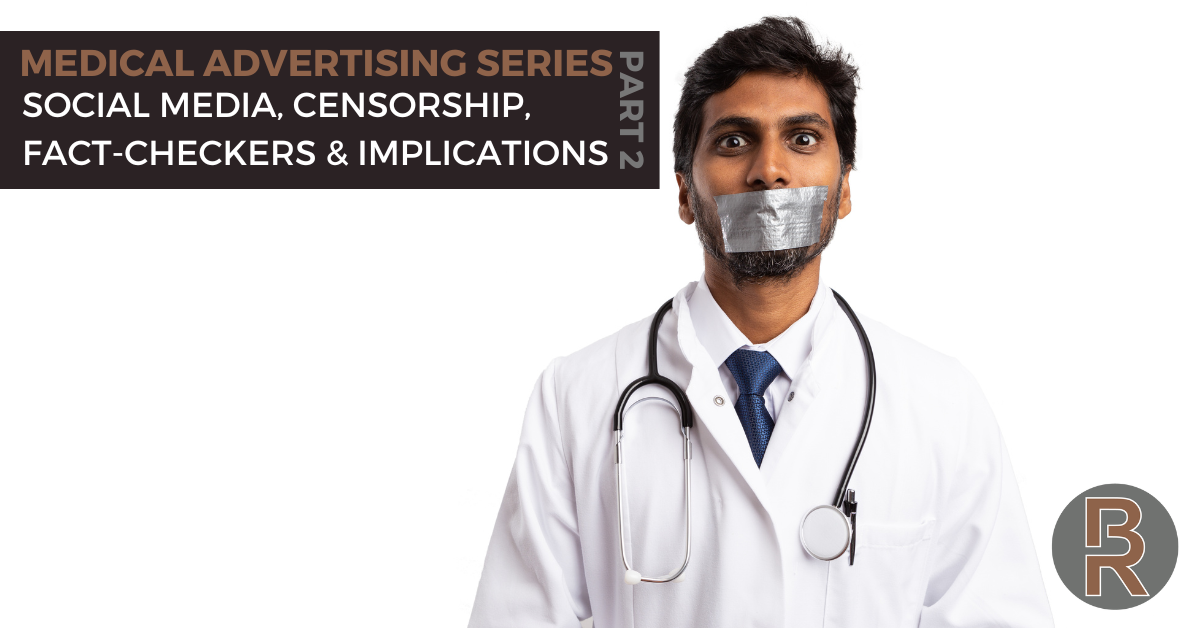
To fight the spread of false news, Facebook and Instagram have employed third-party fact-checkers to help review and identify any news that might be considered false. These fact-checkers come certified through the non-partisan Fact-Checking Network. Fact-checkers in the United States come from various media sources such as The Associated Press, Reuters Fact Check, and USA TODAY among others. In the wake of the coronavirus pandemic, many medical doctors and professionals have taken to various social media platforms with their opinion on different aspects relating to the virus. It is important for medical professionals to understand what is and what is not being allowed to be posted, how censorship plays a role, and what are the possible short-term and long-term implications.
What is the Policy?
Facebook’s policy for fact-checking is very clearly stated: publishers should not post any type of information deemed “false” by the fact-checkers. If the information is deemed false, the distribution of that content will be reduced, lower in the News Feed, and the author will receive a warning notice. Facebook will also act against Pages that repeatedly post or share false information. Pages will see that their content distribution will decrease and they will also lose the ability to advertise. The only way to regain the ability to post content and advertise is to either change the false content and contact the fact-checker or to dispute the claim directly with the fact-checker. Simply removing the content will not remove the strike against an account or page. As always, Facebook does not allow directly advertising content that contains false information. These ads will be disapproved from the onset.
Legal Ramifications
There has been a lot of talk about free speech and the regulation of social media content. In a legal research paper from the Congressional Research Service, the author discusses how the courts have recognized social media sites as venues for users to express their freedom of speech. There comes into question whether these sites are doing enough to combat false speech or if they are “unfairly banning and restricting access to potentially valuable speech.” As stated in the introduction of the research paper, “Currently, federal law does not offer much recourse for social media users who seek to challenge a social media provider’s decision about whether and how to present a user’s content.” One notable piece of legislation is in Section 230 of the Communications Decency Act, specifically Section 230(c)(2). This “provides immunity for sites that take good faith action to restrict access to content that the provider or users deem obscene, lewd, lascivious, filthy, excessively violent, harassing, or otherwise objectionable.” Furthermore, it can be argued that if a user posts content on social media, is it not also a violation of the First Amendment if the social media site is required to publish the content? So it seems, as the paper concludes, that “social media platforms may be more likely to receive First Amendment protection when they exercise more editorial discretion” thus not violating freedom of speech for users that post “obscene” or “objectionable” content.
Implications
Moving forward it is important that health providers utilize trusted sources when deciding what content to post. With such a sensitive subject such as COVID19, there are too many opportunities for what Facebook calls “conspiracy theories” that could be potentially dangerous if shared with the public. Posting and sharing of that information adds the risk of being flagged with page quality violations. It is not easy for a page to recover after receiving these violations and it is best to check your sources to make sure they are accurate in the information they share. Fact-checking is the new norm and we might also see similar use of them on other social platforms such as Twitter. It will be important to learn to adapt to them as I believe new restrictions will be put into place moving forward.
If you would like to talk to a social media expert regarding fact-checkers and implications, please feel free to contact us or call 713-309-6380.
